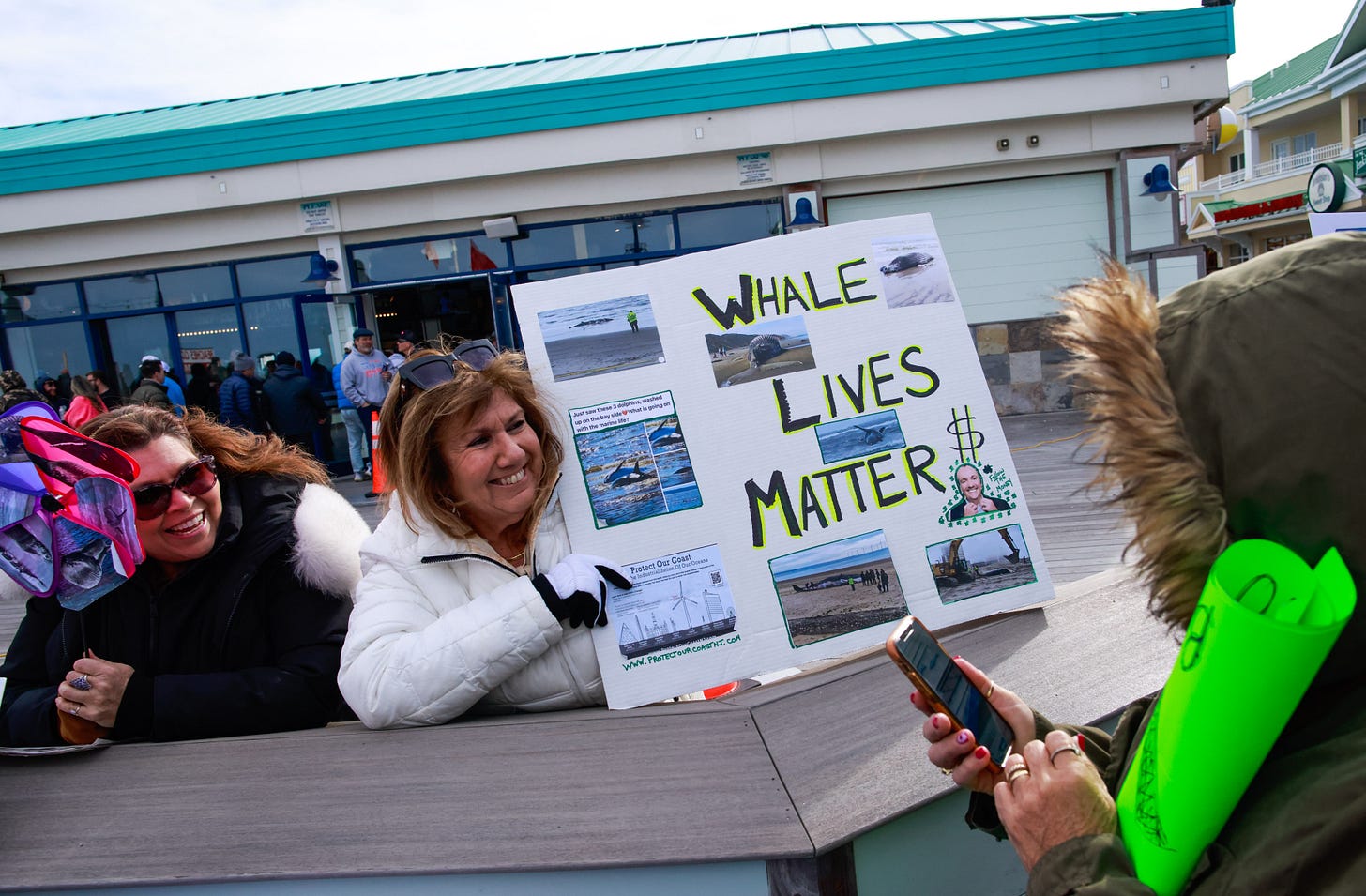Inside the fight over dead whales and wind
New Jersey's environment chief explains what it's like being on the front lines of Republicans' newest culture war.

Dead whales have been washing up at a concerning rate along the Atlantic Coast since 2016. But it’s really only this year that


